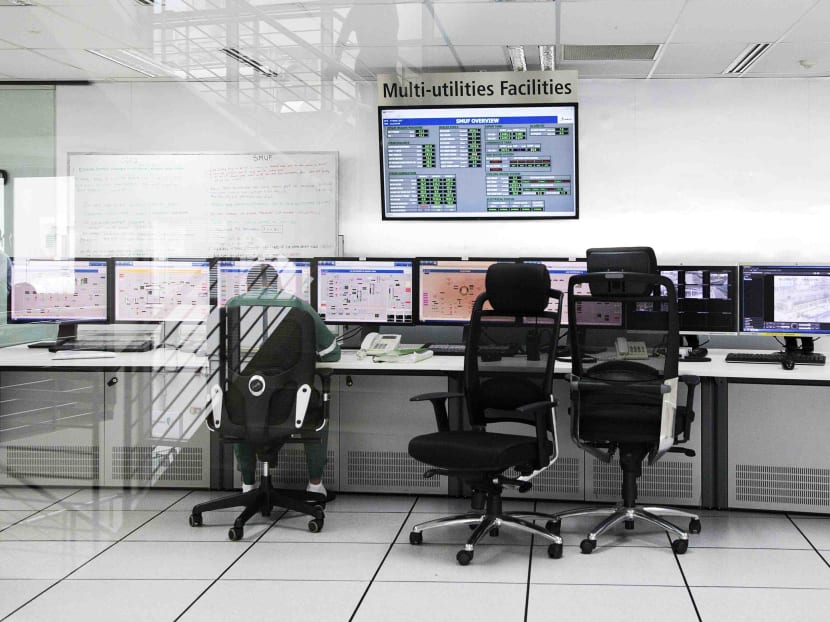Data analytics skills key to a future-ready workforce
Singapore continues to face a shrinking local labour force brought on by an ageing population. This has recently taken centre stage in discussions again as the Government aims to keep the economy robust and organisations seek for manpower.

The author says educators have a major role to play in ensuring the next generation is equipped with data analytics skills.
Singapore continues to face a shrinking local labour force brought on by an ageing population. This has recently taken centre stage in discussions again as the Government aims to keep the economy robust and organisations seek for manpower.
In a post-Budget forum on March 5, Finance Minister Heng Swee Keat discussed the need for businesses to increase productivity in order to overcome this challenge which will get more critical over the next few years.
The nation finds itself in a precarious situation, but has the potential to overcome its challenges and gain a competitive edge by marrying digital technologies and its workforce.
Businesses know they need to evolve in this landscape. They are hungry for talent with digital skills. In fact, Mr Heng has cited data analytics, artificial intelligence, Internet of Things and cybersecurity - termed ‘frontier’ technologies by the Info-communications Media Development Authority - as skills that the workforce needs training in.
The Government is stepping up to the plate and taking active steps to upskill our current workforce with multiple initiatives, including the expansion of the TechSkills Accelerator (TeSA) programme with an additional 20,000 training places to be created by 2020 with courses targeted in frontier technologies.
In the new digital economy, data is the new oil. Insights gleaned from data analytics have immense value and can be a disruptive force, giving organisations of all sizes an edge over their competition.
The Government has also put in place an early measure to open the one-stop open data portal in 2011 to encourage citizens to explore publicly-available datasets, allowing them to create value from research and analysis of data.
There is a realisation that upskilling our current workforce needs to happen fast to reap the benefits of data, and requires the collaboration of different stakeholders. The balancing act though, lies between realising short term gains with being prepared for the future.
This is where educators have a major role to play in ensuring the next generation is equipped with data analytics skills.
Many teachers and trainers here are already working towards building a nation of ‘data warriors’, in line with the Government’s Smart Nation ambitions and cultivating a more data-savvy workforce. The development in recent years of easy-to use, self-service analytics platforms also mean students can realise the value of data without hours of technical learning.
Forward-looking education institutions, such as Nanyang Polytechnic (NYP), have accurately placed an importance on data analytics and visualisation skills, offering relevant modules to their full-time students and night classes to mid-career professionals.
The Data Visualisation module at NYP emphasises critical thinking for students and focuses on their abilities to leverage data to solve real, community-wide problems, such as proposinga suitable location to build a retirement home based on publicly available data.
Another institution, the Singapore Management University (SMU), has introduced a Human Resources Analytics course as part of its Organisational Behaviour and Human Resources major.
The course teaches students how to use analytics in making people decisions, connecting HR policies and practices with business performance. Fermin Diez, a professor teaching the course at SMU, takes the need for data skills very seriously, saying: “The future of the HR profession lies in analytics. No professional entering the field can expect to succeed in his or her career without a solid understanding and hands-on practice of analytical tools to help in making people decisions.”
Prof Diez is correct - it is time to abandon staunch, old stereotypes that data crunching and data skills belong solely within the IT function. People in different roles across departments will need to work with data, and everyone will need to be armed with the right skills.
Just as it takes a village to raise a child, the future-proofing of our workforce is a responsibility which lies with everyone if Singapore is to remain competitive on a global level and an economic leader in Asia Pacific.
ABOUT THE AUTHOR:
JY Pook is Senior Vice President, Asia Pacific for Tableau, a visual analytics company.









